The US has changed since 2020 but Making America Great Again won’t be easy
The real Donald Trump is about to emerge, and is bound to shock and surprise. He has every right to boast about his remarkable return, but he'll soon face the challenge of meeting the high expectations he has set.
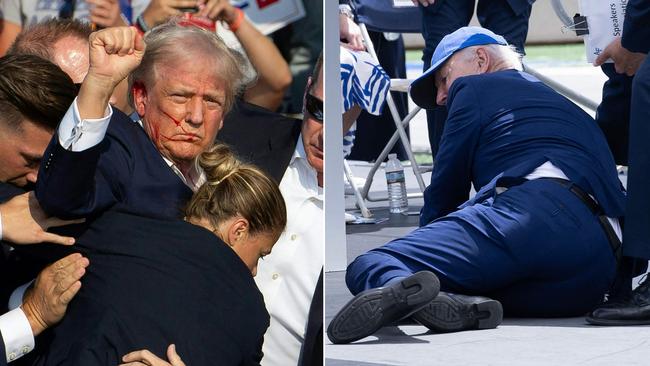
Eight years ago I stood in the rainy cold on Washington’s Mall as Donald Trump delivered his dark, dystopian inauguration address, where I’d just wrapped up a secondment at the Wall Street Journal.
Come Monday (Tuesday AEDT), I will be in Washington again for his second inauguration speech, the culmination of the most extraordinary and potentially formative political comeback of modern times, as I prepare to return to Australia after more than three and a half years as The Australian’s US correspondent.
As I left for Washington in March 2021 daunted by the brilliant tenure of my predecessor Cameron Stewart, I expected a relatively quiet few years of US news, as a discredited if colourful former president faded away and the world lost interest in his doddery, boring successor.
How wrong I was: the Afghanistan withdrawal, the overturning of Roe v Wade, the divisive furore over the Covid-19 response and the historic inflation it generated, the start of two tragic wars in Europe and the Middle East that quickly embroiled the US, and Biden’s rapid decay and replacement as de factor leader of the Democratic party by Kamala Harris punctuated an historic, if disastrous, presidential term.
But it was Trump’s extraordinary path back to the White House, something unthinkable a little over two years ago when he launched his unlikely re-election campaign, that has defined the last few years and will alter the course of history.
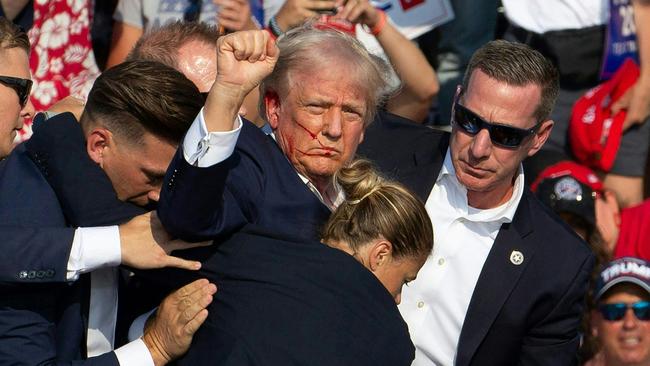
It included two assassination attempts, four criminal indictments, multiple civil lawsuits that attracted fines of hundreds of millions of dollars, and the relentless attacks of the mainstream media which would ultimately see the former president likened to Hitler.
For all that, Trump won, under the prevailing if obscure electoral college rules, in a landslide; if presidents were instead determined by “the popular vote”, the major political parties’ strategies would differ. No doubt last year convinced some Trump-supporting atheists and agnostics to start believing in God.
Indeed, my own view of Trump evolved significantly throughout my tenure from one of indifference to wholesale admiration. No-one could deny the man’s bravery and composure literally under fire during the first assassination attempt. The energy and discipline he displayed throughout his campaign were similarly impressive, especially for a 78-year-old.
The second Trump term should dwarf the first in impact: unlike in 2017, Trump understands how government works, has a much larger electoral mandate, and most importantly of all, can’t be re-elected, so shouldn’t be cowed by threats from donors or lobbyists.
The real Trump, a pragmatic populist centrist despite his detractors’ hysteria, is about to emerge, and is bound to shock and surprise.
Indeed, he has already, by apparently pushing Israel to accept a ceasefire deal that has infuriated conservatives in prime minister Netanyahu’s government. He’s recently backflipped on his earlier steadfast insistence TikTok be banned or sold to American investors, which is meant to occur on Sunday following recent legislation.
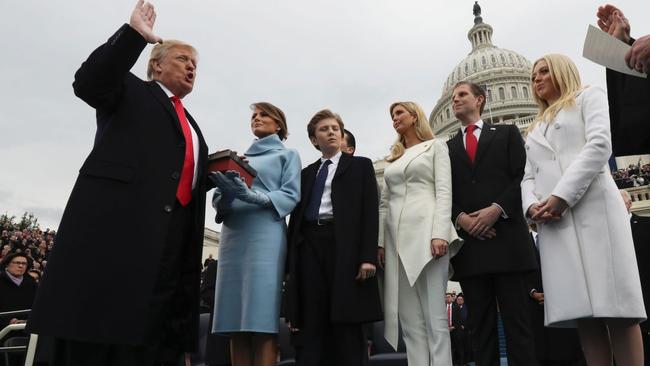
Inauguration day promises to be the coldest since Ronald Reagan’s in 1985 – a maximum temperature of minus four degrees Celsius at the time of writing – but the outlook for Trump’s second term, in terms of the soon to be 47th president’s ability to pursue a reform agenda that unites Americans, is far brighter than it was after his slender victory in 2016.
No prominent Democrats have disputed the election result, as Republicans vehemently did after Biden’s victory in 2020, or even Trump’s significant mandate. According to a CNN poll published on 16 January, 56 per cent of Americans expected Trump to do a good job in his second term compared with 48 per cent at this stage in 2017.
The lawfare and hoaxes that underpinned Democrats’ political strategy to destroy Trump politically during his first term and throughout his re-election campaign have clearly failed, suggesting such divisive measures might not be repeated against him or his GOP successors if Democrats hope to restore their electoral fortunes to have a chance of winning in 2028.
Similarly, the mainstream media has shredded its reputation in the eyes of a growing number of Americans rather than derail Trump’s political comeback, suggesting editors might take a more balanced approach to reporting a second time around. Notably, Jeff Bezos’s Washington Post, which had been haemorrhaging readers, declined to endorse a presidential candidate last year.

According to Gallup the share of Americans who say they have no trust whatsoever in the media has surged from 4 per cent in 1976 to 36 per cent late last year, while the share who claim to have a ‘fair or great amount’ of confidence has collapsed from 72 to 31 per cent.
Moreover, Trump dealt a severe blow to Democrats’ traditional – and also inherently divisive – political strategy, which has increasingly revolved around fostering the perception of racism, sexism, and discrimination against people with unconventional sexualities. Trump achieved significant swings toward the Republican party from women, black and Hispanic voters, not to mention attracting majority support among working class voters, suggesting Democrats will have to come up with a more genuinely inclusive platform.
Moreover, corporate America has lavished donations on Trump’s inauguration in excess of US$170 million, more than the combined sum raised by Trump and Biden for their 2017 and 2021 events, respectively. The stigma of publicly supporting Trump has faded markedly in the wake of his November win.
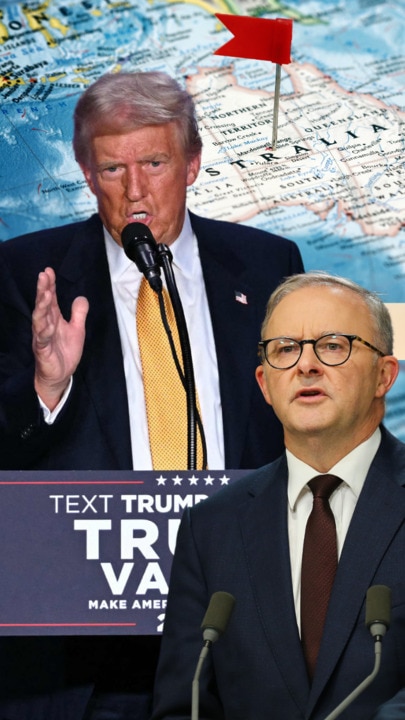
All these developments could even prompt a greater focus on policy, discussion of which since 2016 has been all but drowned out by eight years of bitter, internecine squabbling surrounding the personality and behaviour of Donald Trump himself.
Trump’s re-election appears to have elicited major cultural shifts too: a growing rejection of both ‘diversity, equity and inclusion’ and the trend toward censorship by social media platforms. Both reached their zenith in the early years of the Biden administration.
Walmart, Ford, and Boeing among other large US companies have dumped such race-based policies, as have numerous major universities throughout the US. The high-profile shelving of fact checking by Mark Zuckerberg’s Meta, which owns Facebook, brings the world’s largest social media platform more in line with Elon Musk’s X, formerly known as Twitter.
Trump’s second and more convincing win also totally up-ended the US political spectrum, as it has been understood for decades, and transformed the Republican party indefinitely.
The terms ‘right’ and ‘left’ wing have become increasingly meaningless, at least for intelligent observers, as the Republican party attracts more support from low income and working-class voters. Meanwhile Democrats’ strong support among college educated voters, and their niche (and increasingly unpopular) cultural issues, have made for an awkward embrace of high-income earners.
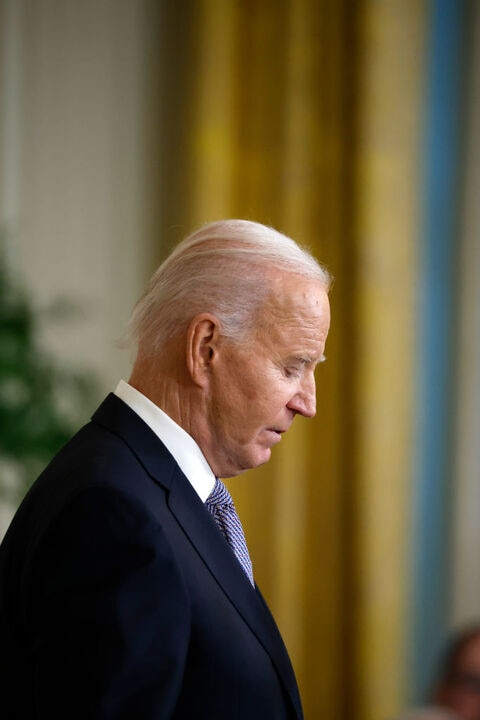
Indeed, Trump’s signature economic policy – imposition of a universal tariff – would once have been considered ‘left wing’. For the first time in decades the Teamsters trade union, one of the largest in the US, declined to endorse a Democrat for president last year, amid polling of its membership that showed significant support for Trump.
I was surprised to hear a young Trump supporter on election night tell me that the US needed a health system like Australia’s. Trump Republicans are far more suspicious of big business than they were under the leadership of Ronald Reagan or either president Bush.
In foreign policy the two major US parties appear to have flipped too: Republicans under Trump have become less inclined to pursue interventionist foreign policy than Democrats.
Trump’s rise has rendered the Republican party a much broader church that includes pretty much every stance on prevailing domestic and foreign policy questions. In Trump’s second term expect the major ideological and political clashes to occur within the Republican party and among its most senior members, as the Democratic party licks its wounds and tries to regroup.
Most recently, Trump’s Middle East envoy Steve Witkoff had a direct impact on Israel’s tortured negotiations with Hamas for a ceasefire, which is set to take place on Sunday.

The very public sniping over a class (HB1) of US visa that facilitates high skilled immigration (largely of Indians) has pitted what might be described as the Steve Bannon and Elon Musk wings of the party against each other.
Trump has every right to proudly boast about his remarkable return, but he will soon face the challenge of meeting the high expectations he has set. Making America Great Again won’t be easy. Trump won office a second time primarily because of widespread disquiet about inflation, out of control immigration and concern about America becoming embroiled in new wars.
Americans who expect Trump will reduce prices back to where they were in 2021 are about to be sorely disappointed. The trillions of new dollars pumped into the US economy during 2020 and 2021 – by both the Trump and Biden administrations – generated historic inflation that infuriated much of the US electorate.
Fortunately for Trump, Biden copped practically all the blame, even as the rate of inflation fell steadily back toward 2 per cent last year. Trump’s second term pledges include imposing tariffs, which if anything, could put upward pressure on domestic prices.
At the same time, he has promised massive tax cuts against a dire and worsening fiscal backdrop that could easily trigger a financial crisis if left unresolved. US public debt is poised to soar well beyond World War II level without large increases in taxation of major cuts to spending.
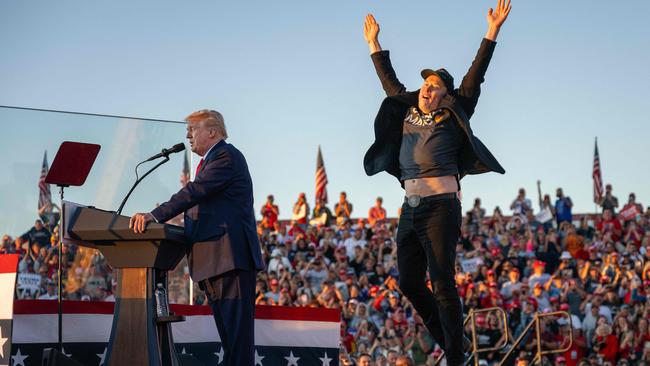
Trump and Elon Musk have made much of their so-called Department of Government Efficiency – in reality an advisory body – but major cuts will be politically difficult, especially given Trump has promised not to slash Medicare or Social Security, two of the largest federal government expenditures.
Similarly, Trump’s promise to remove many millions of undocumented immigrants will undoubtedly become a logistical nightmare and perhaps even undermine the economic growth the president will want to crow about. The influx of millions of undocumented workers, notwithstanding the social problems, they create, has endured the US population continues to grow robustly despite a native-born white population (as in Europe and elsewhere) that exhibits a childbirth rate significantly below replacement rate.
Finally, Trump’s promise to end the war between Russia and Ukraine could prove far more difficult than he has suggested. Russia has repeatedly said it went to war to prevent Ukraine joining NATO, in other words to keep US and European troops out of the former soviet nation. It will be very hard for Trump to concede this to Vladimir Putin without being cast by US media, and many Republicans, as having a made a losing deal for the US.
Escalation of this already deadly war is very possible, even probable in coming weeks and months, at that same time as Trump’s tentative Israel-Hamas ceasefire deal, which emerged earlier this week, could totally unravel.
Trump’s 2017 inauguration address was as short, only around 16 minutes, as it was gloomy. I suspect he’ll have a lot more to say in two days. Whatever, he should be optimistic this time around: he’s at the height of his political power, leading a nation that would like to put partisan political warfare behind it, and has the opportunity to drastically recast Americans relationship with their government, and the US’ relationship with the rest of the world.


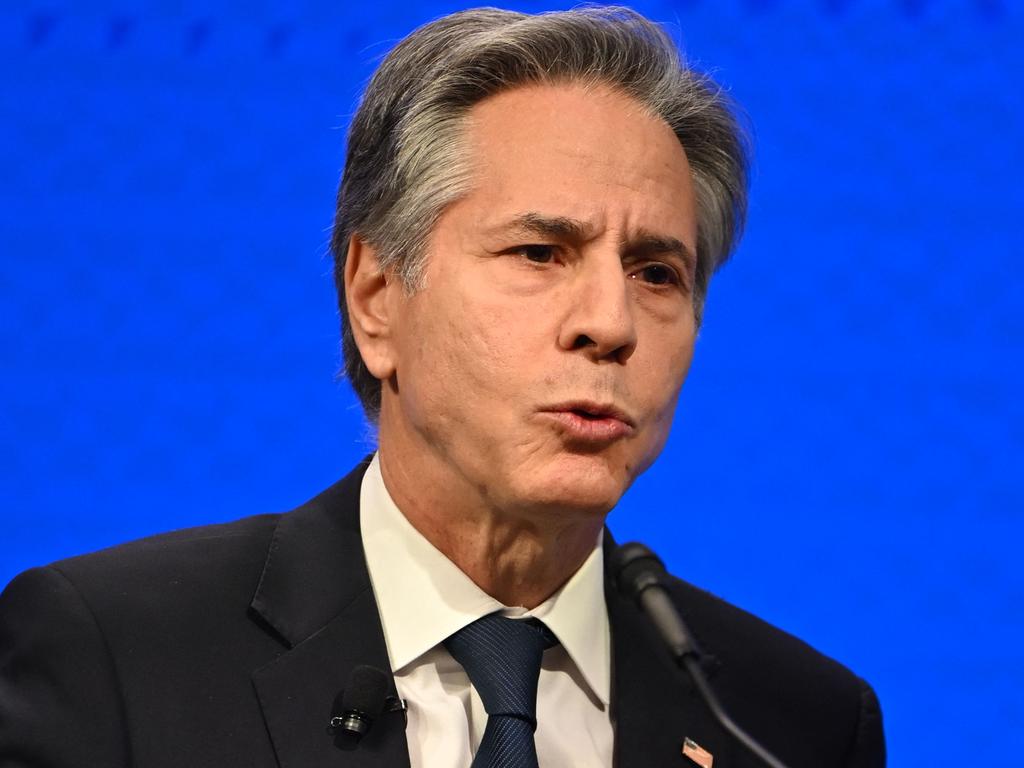



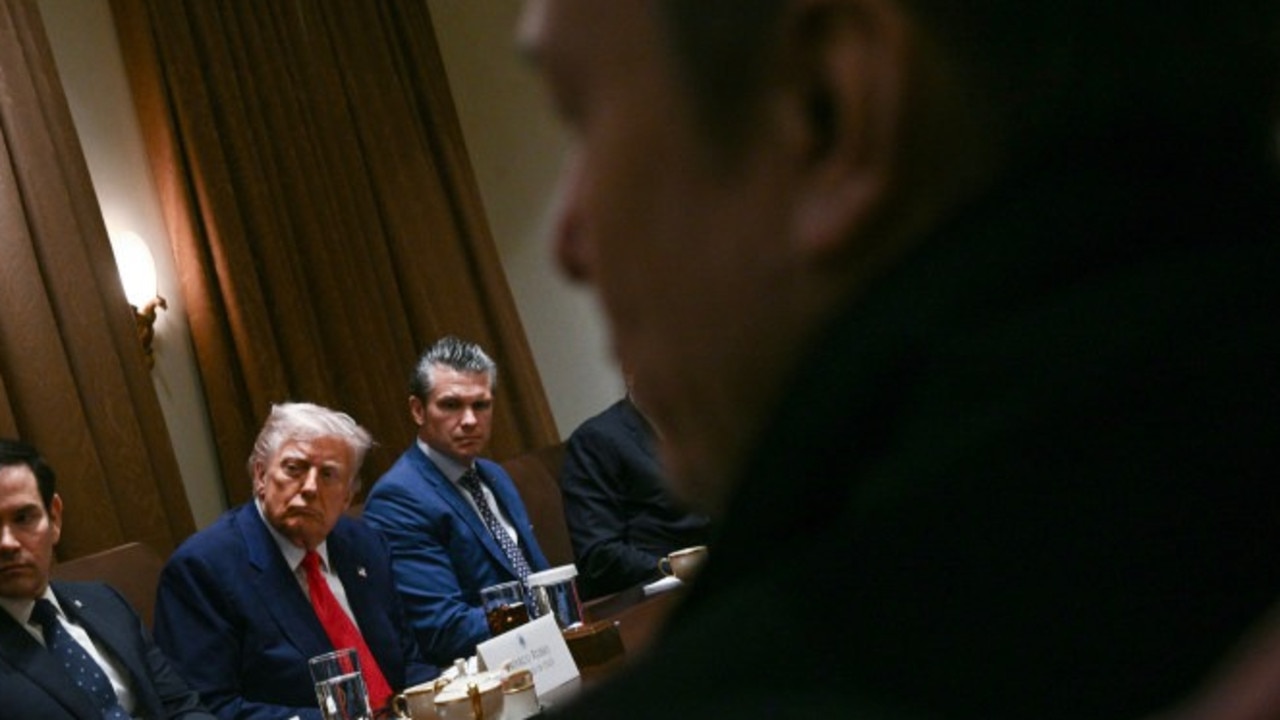
To join the conversation, please log in. Don't have an account? Register
Join the conversation, you are commenting as Logout